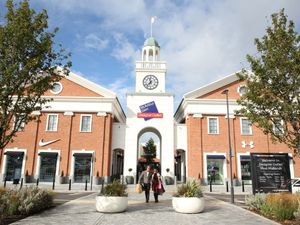West Midlands output and sales rise modestly in September, report says
Economic growth in the West Midlands entered its 12th straight month in September, with a slight increase in new business intakes encouraging companies to scale up output.
That was according to the NatWest Regional Growth Tracker data.
The headline West Midlands Business Activity Index – a seasonally adjusted index that measures the month-on-month change in the combined output of the region’s manufacturing and service sectors – fell from 52.2 in August to 51.2 in September, indicating a further increase that was nevertheless softer than in the previous month.
Monitored companies stated that new client wins and repeat orders from existing customers supported output growth.
The upturn was reportedly constrained by political uncertainty and economic challenges at key export partners.
Amid reports of demand resilience and the securing of new customers, private sector companies in the West Midlands noted a further expansion in order book volumes.
Although marginal and below its long-run average, the pace of growth accelerated from August. Nevertheless, qualitative data accompanying the survey indicated that sales growth was constrained by macroeconomic challenges among export partners in Europe, deferred investment and public policy uncertainty.
The seasonally adjusted Input Prices Index rose to a five-month high in September, indicating a pick-up in cost pressures across the West Midlands. Survey participants stated that unfavourable exchange rate movements, greater outlays on labour and material price hikes fuelled inflation. Companies continued to share additional cost burdens with their clients by lifting selling prices in September. The rate of charge inflation was marked but unchanged from August.
Lisa Phillips, Regional Managing Director, Midlands and East, Commercial Mid Markets, said: "A modest recovery in sales growth supported a further increase in West Midlands output during September, but underlying data revealed some near-term headwinds.
"When completing the survey, local firms expressed concerns around public policy uncertainty, particularly in light of the upcoming Autumn Budget announcement and potential tax rises.
"This temporary lack of clarity dampened business confidence, which slipped to a 21-month low. Companies refrained from hiring extra workers in September, with reports of hiring freezes and redundancies becoming more common. Rising cost pressures was the main culprit behind job shedding."




